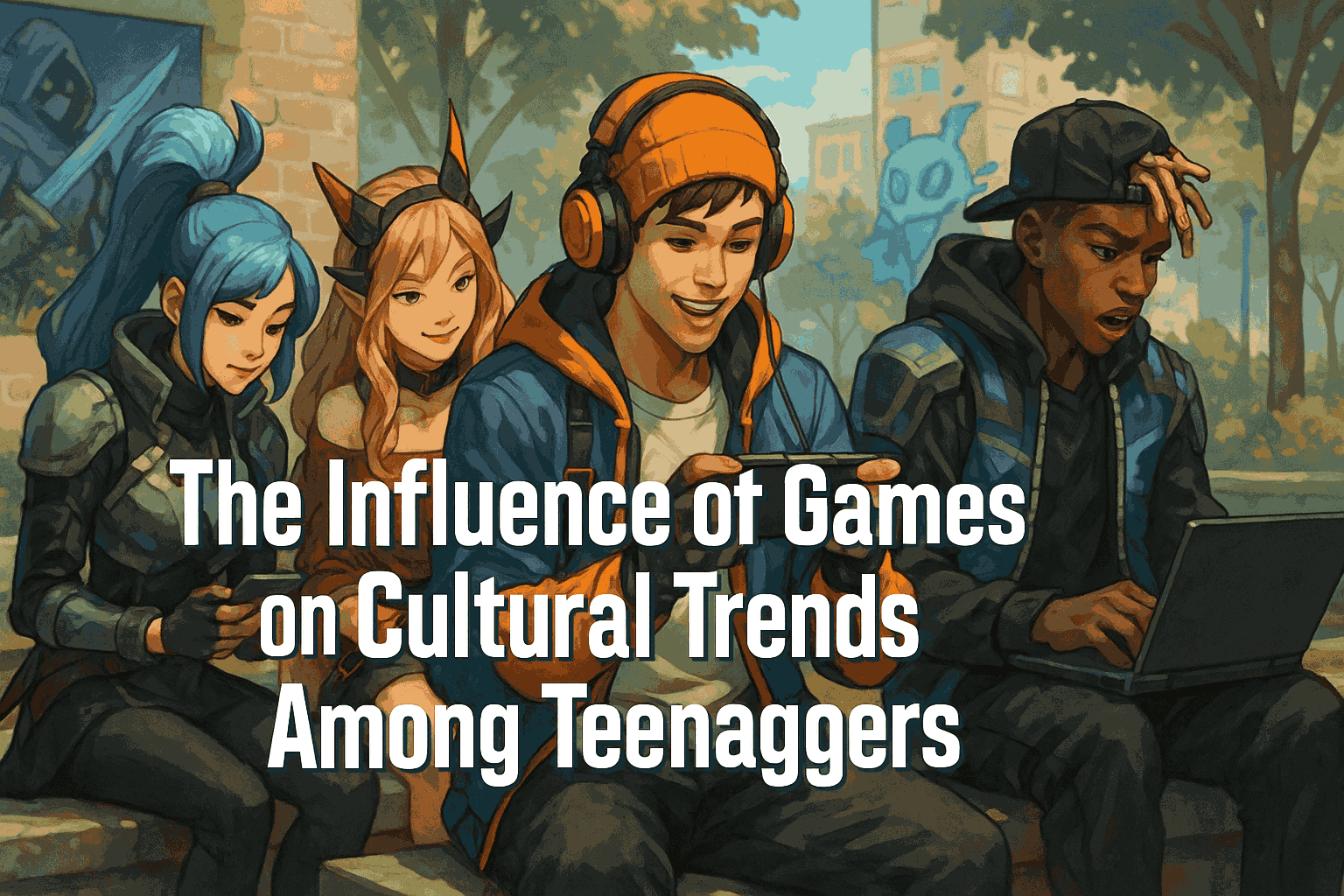
Video games have evolved into a major part of teenage life—not just as a source of entertainment, but also as a cultural force shaping trends and identity. From game genres and social interaction to fashion and everyday language, the world of gaming has had a significant impact on how teenagers communicate, socialize, and view the world. This article explores how games influence cultural trends among teens and help shape their identities.
1. SOCIAL INTERACTION AND COMMUNITY BUILDING
Gaming is no longer a solitary activity—it’s now a social experience. Online multiplayer games like Fortnite, PUBG, and Minecraft allow teenagers to connect and collaborate with players from around the world. These communities go beyond casual gameplay and often foster values like teamwork, fair competition, and friendship. Through gaming, teens form new friendships, share experiences, and learn essential social skills like communication and collaboration.
2. FASHION TRENDS AND VISUAL INDENTITY
Games have a major impact on teen fashion trends. Popular titles like League of Legends and Overwatch feature highly stylized characters that inspire clothing choices, accessories, and even hairstyles. Cosplay—the act of dressing up as game characters—has also become a cultural phenomenon among teens, especially during gaming and anime conventions. These visual influences help teenagers express their individuality and connect with gaming communities.
3. LANGUAGE AND COMMUNICATION STYLE
Gaming significantly affects how teens communicate. Terms like “noob,” “GG” (good game), and “AFK” (away from keyboard) have become part of everyday slang. These gaming phrases spread quickly, especially through social media platforms like TikTok, YouTube, and Discord, where teens engage with gaming content. This unique language strengthens identity within the gaming culture and fosters a sense of belonging.
4. BOOSTING CREATIVITY AND PROBLEM SOLVING
Games with strategic or adventure elements, such as Minecraft and The Legend of Zelda, are known for enhancing creativity and problem-solving skills. Teenagers are encouraged to think critically, make quick decisions, and find innovative solutions to in-game challenges. These skills often translate to real-world situations, where teens learn to think strategically and work collaboratively—valuable competencies in modern life.
5. ESPORTS CULTURE AND GLOBAL COMPETITION
One of the biggest cultural impacts of gaming among teens is the rise of esports. Competitive gaming has attracted millions of young fans globally—as players and spectators. International tournaments like The International (Dota 2) and League of Legends World Championship have turned games into spectator sports. Many teenagers now aspire to become professional esports athletes, further embedding gaming in youth pop culture.
6. LIFESTYLE INFLUENCE AND MENTAL HEALTH
Gaming can influence teen lifestyles in both positive and negative ways. On the positive side, it offers a form of relaxation and stress relief. However, excessive gaming can lead to issues such as poor sleep, eye strain, and lack of physical activity. Gaming addiction may also affect mental health. Thus, it is important for teens to balance their screen time and maintain a healthy daily routine.
7. THE ROLE OF GAMES IN EDUCATION
Games are increasingly being used as tools for learning. Educational games help teens explore subjects like math, science, and history in fun and interactive ways. Titles like Kerbal Space Program and Civilization make learning engaging through immersive simulations. These types of games promote curiosity and hands-on learning, making education more appealing and effective for today’s tech-savvy teens.
CONCLUSION
The impact of gaming on teenage culture is vast, influencing social interaction, fashion, language, lifestyle, and even education. Games are more than entertainment—they help shape identity, develop critical life skills, and offer new forms of global competition through esports. As the gaming industry continues to grow, its role in shaping youth culture will only become more significant. Understanding this influence allows parents, educators, and communities to support healthy and meaningful gaming experiences.
 Indonesia ID
Indonesia ID  English EN
English EN
